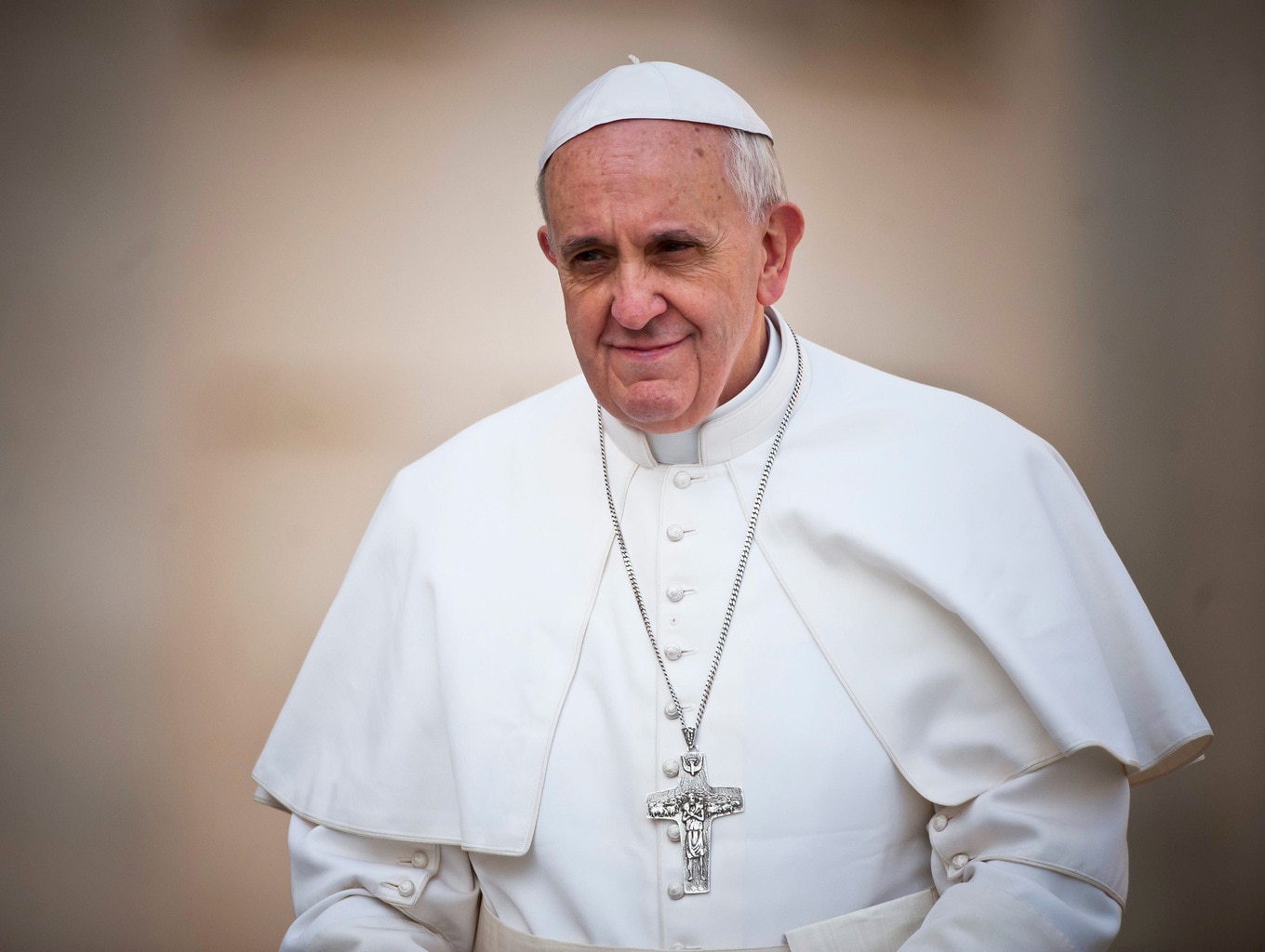If Catholic leader Pope Francis returned to Meat-Free Fridays in churches across the globe, the change would mitigate millions of metric tons of greenhouse gas emissions annually, according to a new study led by the University of Cambridge.
In 2011, the Catholic bishops of England and Wales called on congregations to forgo meat on Fridays. The study notes that only about one quarter of Catholics adjusted their diets to include less meat, but this still saved over 55,000 metric tons of carbon annually—the equivalent to 82,000 fewer people taking a return trip from London to New York over the course of a year.
For Christians, the practice of meat-free Fridays dates back to at least Pope Nicholas I’s declaration in the 9th century. Catholics were required to abstain from eating meat (“flesh, blood, or marrow”) on Fridays in memory of Christ’s death and crucifixion.
“The Catholic Church is very well placed to help mitigate climate change, with more than one billion followers around the world,” study lead author Professor Shaun Larcom from Cambridge’s Department of Land Economy said in a statement. “Pope Francis has already highlighted the moral imperative for action on the climate emergency, and the important role of civil society in achieving sustainability through lifestyle change.”

At the EU Youth Conference in Prague earlier this year, Pope Francis released a letter to encourage young people to take action toward a kinder future, including eating less meat as a means of mitigating the climate crisis.
“May you aspire to a life of dignity and sobriety, without luxury and waste, so that everyone in our world can enjoy a dignified existence,” Pope Francis wrote. “There is an urgent need to reduce the consumption not only of fossil fuels but also of so many superfluous things. In certain areas of the world, too, it would be appropriate to consume less meat: this too can help save the environment.”
Eating less meat to save the planet
For the study, Larcom and colleagues combined new survey data with that from diet and social studies to quantify the effects of a statement issued by the Catholic Church for England and Wales re-establishing meat-free Fridays as a collective act of penance from September 2011 onwards after a 26-year hiatus.

Commissioned survey results suggest that 28 percent of Catholics in England and Wales adjusted their Friday diet following this announcement. Of this segment, 41 percent stated that they stopped eating meat on Friday, and 55 percent said they tried to eat less meat on that day. For those who said they just reduced consumption, the researchers assumed a halving of meat intake on a Friday.
According to the National Diet and Nutrition Survey (NDNS), people in England and Wales eat an average of 100 grams (3.5 ounces) of meat per day. The study’s researchers calculated that even the small reduction in meat intake by a section of the Catholic population was equal to each working adult across the whole of England and Wales cutting two grams (0.07 ounces) of meat a week out of their diet.

The team then calculated the carbon footprint for this tiny drop in meat consumption by comparing emissions generated from average daily diets of meat eaters and non-meat eaters in England and Wales. The average high-protein meatless diet, including foods such as fish and cheese, contributes just a third of the greenhouse gas emissions per kilogram compared to the average meat eater.
Assuming the Catholics who did adapt their diet switched to high-protein meatless meals on Fridays, the researchers calculated that this equates to approximately 875,000 fewer meat meals a week, which saves 1,070 metric tons of carbon—or 55,000 metric tons over a year.
“Meat agriculture is one of the major drivers of greenhouse gas emissions. If the Pope was to reinstate the obligation for meatless Fridays to all Catholics globally, it could be a major source of low-cost emissions reductions,” Larcom said. “Even if only a minority of Catholics choose to comply, as we find in our case study.”
The study also notes that if Catholic bishops in the United States alone issued an “obligation” to resist meat on the last day of the working week, environmental benefits would likely be twenty times larger than in the United Kingdom.
“Our results highlight how a change in diet among a group of people, even if they are a minority in society, can have very large consumption and sustainability implications,” said co-author Dr Po-Wen She, a fellow of Cambridge’s Department of Land Economy.
For the latest vegan news, read:
JUMP TO ... Latest News | Recipes | Guides | Health | Subscribe









